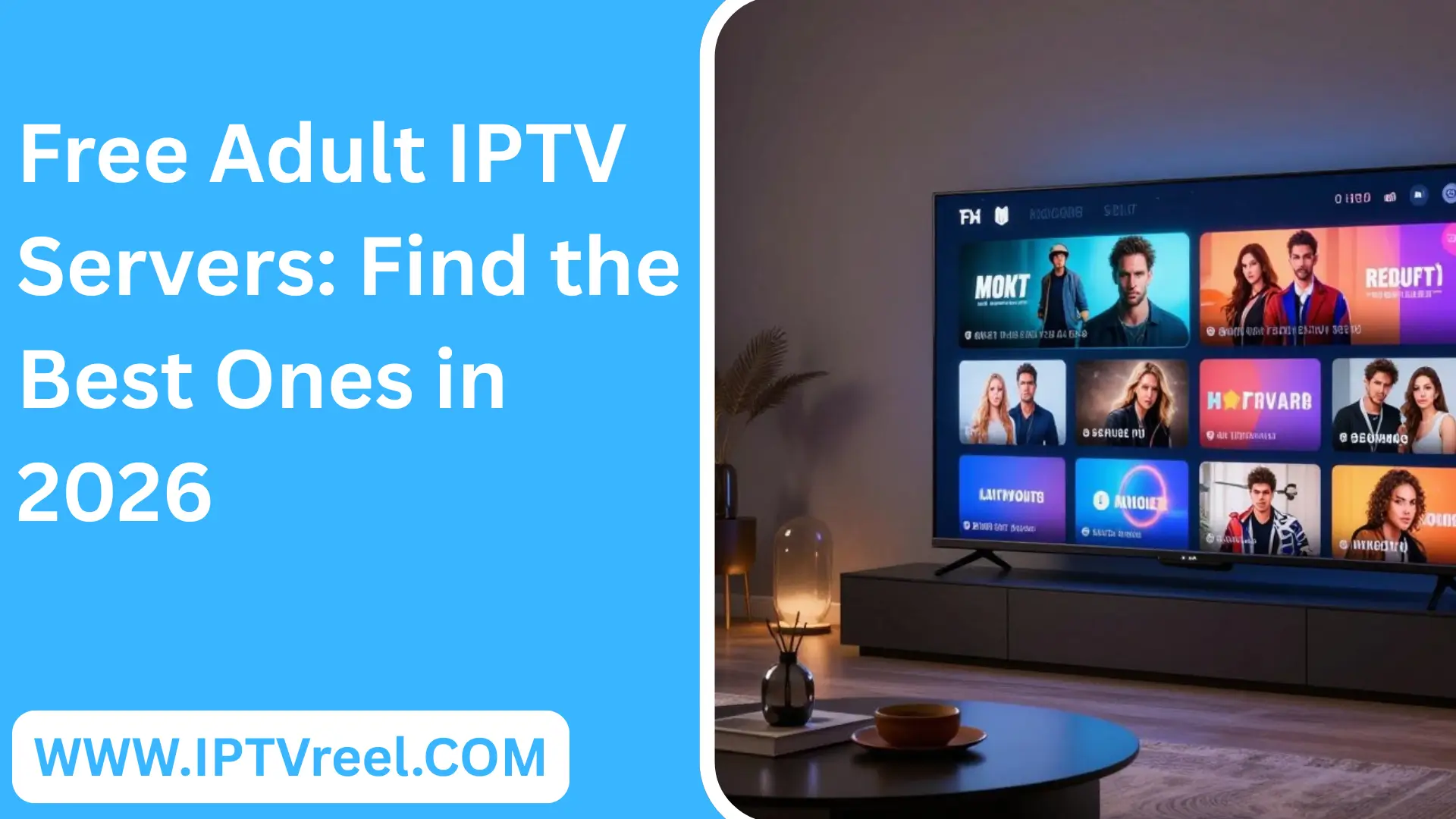In recent years, IPTV (Internet Protocol Television) has revolutionized how people watch television by offering users access to live channels and on-demand video content through internet streaming.
With its growing popularity, however, comes rising curiosity—and some confusion—about its legal implications. Is IPTV legal? The answer is not straightforward, as IPTV legality depends on various factors, including the type of service, content licensing, and regional regulations.
This blog post will delve into the legal landscape of IPTV to help you navigate this new wave of digital entertainment.
What Is IPTV and How Does It Work?
IPTV, short for Internet Protocol Television, refers to delivering television content over Internet connections rather than through traditional broadcast, cable, or satellite T.V. formats.
Unlike traditional television, which broadcasts all content simultaneously, IPTV offers an on-demand and customizable viewing experience. It allows users to directly select their desired programs, whether live T.V. or stored content, from a server.
There are three main types of IPTV:
- Live Television: Real-time broadcasting of T.V. channels over the internet.
- Video on Demand (VOD): A selection of movies and shows that users can access whenever they choose.
- Time-Shifted Media: Allows viewers to watch previously aired T.V. shows at their convenience, similar to DVR services.
While the technology is entirely legal, concerns arise when discussing content sources and licensing, leading to a complex legal landscape.
When Is IPTV Legal?
IPTV, in its essence, is a legitimate technology. Many prominent companies and platforms, including Netflix, Hulu, and YouTube T.V., use IPTV technology to stream content legally. Here are the main factors that contribute to the legality of an IPTV service:
Proper Licensing Agreements
For an IPTV service to be legal, it must obtain licenses from content providers, networks, or studios. These licenses ensure that streamed content complies with copyright and intellectual property laws. Legitimate IPTV providers pay royalties or fees to the original creators or distributors of the content, enabling them to stream legally.
Regional Compliance
The licensing for T.V. content often varies by region, and some content may be restricted in certain countries. Legal IPTV services work within these boundaries and may only provide content available for streaming in specific countries due to licensing restrictions.
Transparency in Service
Legitimate IPTV services typically offer clear information on their content sources, pricing, and licensing. They often have customer support, business addresses, and a track record in the industry. Transparency is a critical factor that distinguishes a legal service from a dubious one.
Examples of fully licensed and legal IPTV providers include:
- Netflix: Netflix offers a library of licensed movies and T.V. shows available on demand.
- Sling T.V.: A subscription-based service offering live T.V. channels.
- Amazon Prime Video: Provides live T.V. and on-demand content licensed from various networks and studios.
Legal Disclaimer: Our review articles are intended solely for educational purposes. IPTVreel does not possess, host, operate, resell, or distribute any video streaming sites/apps, addons, IPTV, or services mentioned. Some services listed may not be verified for legal distribution of content. IPTVreel does not verify the legality of these apps/services in all jurisdictions. Users are advised to exercise caution and perform their due diligence before using any unverified apps/services. It is recommended to stream only content that is legally available in the public domain. The end-user assumes full responsibility for their media access choices.
When Is IPTV Illegal?
On the flip side, not all IPTV services operate within the bounds of the law. Illegal IPTV services often stream copyrighted content without permission or licensing agreements. Here are some red flags indicating that an IPTV service may be operating illegally:
Unauthorized Content Sources
One of the most common signs of illegal IPTV is unauthorized content. Some IPTV providers stream popular channels or shows without permission, meaning the provider does not pay royalties or fees for copyrighted material. Such services often appear suspiciously cheap or may even be available for free, as they are not incurring the costs associated with legitimate licensing.
Low-Cost Subscription Services
If a service offers premium content like live sports, new movies, and popular T.V. channels at a meager price, it’s often a sign that the service is streaming illegally. These low-cost services tend to attract users who may not know the legal risks, thinking they’ve found a great deal.
Unclear or No Information on Licensing
More transparency about where content originates or who licenses it is another warning sign. Illegal IPTV services rarely provide straightforward terms and often don’t reveal their business model or how they acquire their content.
Offshore or Hidden Operations
Many illegal IPTV services operate outside mainstream legal systems, often registering in countries with lenient enforcement of copyright laws. They may be difficult to trace, with little accountability if the service is shut down or stops working.
The Legal Risks of Using Illegal IPTV
Using an illegal IPTV service may not seem risky on the surface, but users could face legal consequences and other complications:
Penalties and Fines
In many countries, accessing pirated content is against the law. Users caught streaming illegal content may face penalties or fines, even if they claim ignorance about the service’s legality. Some regions enforce penalties against end users, though enforcement varies.
Data Privacy and Security Risks
Illegal IPTV providers often lack the security infrastructure of legal platforms, making users vulnerable to data breaches, malware, and phishing attacks. Personal information, payment details, and viewing habits may be compromised, posing a real risk to users’ privacy.
Service Instability and Lack of Support
Illegal IPTV services are frequently shut down due to copyright enforcement actions. Consequently, users may need a warning or recourse to gain access to the service. Additionally, these services rarely offer customer support, leading to frustration if technical issues arise.
Global Legal Landscape of IPTV
The legality of IPTV varies significantly across the world, with different countries having unique approaches to regulating digital content:
- United States: The U.S. has strict copyright laws and enforcement measures, primarily through organizations like the Motion Picture Association of America (MPAA). Using illegal IPTV services can lead to significant penalties, and many unauthorized IPTV operators face legal action.
- European Union: Many European countries have stringent regulations on digital piracy, with the European Union actively pursuing copyright infringement cases. In the U.K., for example, the Digital Economy Act increases penalties for streaming pirated content.
- Canada: Canada has laws against content piracy, but enforcement is less aggressive than in the U.S. However, Canadian users can still face penalties for knowingly streaming pirated content.
- Australia and New Zealand: These countries have increased efforts to combat illegal IPTV, with recent initiatives targeting pirate sites and illicit streaming platforms.
Enforcement is becoming more uniform globally as authorities collaborate to shut down illegal IPTV services. However, regional disparities remain, and users should research local laws before using any suspicious IPTV services.
How to Ensure You’re Using a Legal IPTV Service
To avoid the legal risks of IPTV, follow these best practices:
- Research the Provider: Find reputable services with explicit business models and customer reviews.
- Check Licensing Information: Legal IPTV providers disclose their licensing and business partnerships.
- Avoid Suspiciously Low Prices: It likely is if it sounds too good to be true. Legitimate services charge realistic prices.
- Opt for Recognized Services: Use well-known IPTV platforms, as they are more likely to adhere to legal standards.
Conclusion
IPTV technology itself is not illegal, but how the content is sourced and streamed makes all the difference. Legal IPTV services are fully licensed and comply with copyright laws, while illegal ones bypass licensing to provide content unlawfully.
Given the potential legal and security risks, users should be cautious when choosing IPTV providers. Always verify licensing and look for transparency in business practices to ensure you’re using a legal IPTV service.
In the ever-evolving world of digital streaming, understanding the legal landscape surrounding IPTV is crucial. By staying informed and vigilant, you can enjoy the convenience of IPTV without the risks associated with illegal streaming services.












